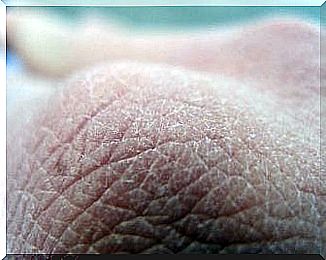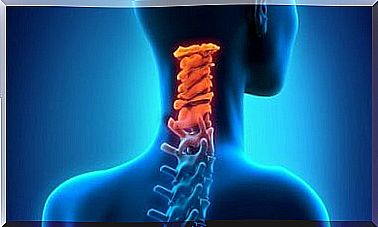8 Symptoms That Indicate A Vitamin C Deficiency
Vitamin C is not only essential for the immune system. It also plays an important role in cell regeneration and wound healing. In the case of a vitamin C deficiency, injuries therefore heal more slowly.

It’s no secret that vitamin C plays a fundamental role in health. This vitamin is one of the best known, because it is not only important for a strong immune system, but also takes on important functions in many other body processes. It is all the more important to avoid a vitamin C deficiency.
It has been shown that the regular consumption of vitamin C improves blood circulation, promotes cell growth and reduces oxidative cell damage.
In addition, vitamin C is necessary to properly absorb iron and utilize calcium. For all these reasons, a vitamin C deficiency can lead to various negative reactions that directly affect the physical and mental state.
In the beginning, the consequences are usually not very bad, but over time various symptoms become noticeable. Discover them!
1. Weak hair and hair loss

Thin hair and hair loss are due to a variety of factors.
A vitamin C deficiency could also be responsible, as this vitamin is a basic nutrient that is necessary for the formation of collagen and proteins, which are essential for strong hair.
A diet low in vitamin C can consequently lead to dry hair, susceptibility to dandruff, and hair loss.
2. Frequent infections
People with a vitamin C deficiency are more likely to get infections than those who take the recommended amount of this vitamin.
This nutrient is essential for the body’s defense system, which is why pathogens have a much easier role in the event of a deficiency.
3. Mood swings

Vitamin C is also closely related to emotional health.
A balanced vitamin C level ensures mental balance, calm and control over those hormones that cause a bad mood.
A vitamin C deficiency can therefore lead to mood swings and irritability. Stress and negative emotions can also be the result.
4. Fatigue
Exhaustion or the constant feeling of tiredness are symptoms that can indicate numerous health problems.
A vitamin C deficiency can also be behind this, because this nutrient is crucial for optimal physical and mental performance.
Too little vitamin C worsens the quality of sleep, which also leads to fatigue.
5. Poor wound healing

Since vitamin C is necessary for the correct oxygen supply and cell repair, wounds heal more poorly when deficient.
It often happens that superficial wounds appear very slowly to recover and bruise very quickly.
6. Body pain
If pain persists, a doctor’s diagnosis is needed to determine the cause.
There are many reasons for this. One of them is a vitamin C deficiency, as this vitamin has a direct impact on muscle and joint health.
When there is not enough vitamin C in the body, certain minerals are not properly absorbed, which can lead to muscle weakness.
In addition, collagen is not properly synthesized, which in turn weakens the cartilage tissue that protects the joints.
7. Dry skin

Daily consumption of vitamin C is one of the best habits for healthy, silky and glowing skin.
This vitamin prevents the premature loss of collagen and elasthin. These two substances are necessary for the firmness and elasticity of the skin.
Regular intake of vitamin C also prevents the negative effects of free radicals. It also supports the elimination of harmful substances and reduces the risk of premature aging.
But that’s not all: Vitamin C supplies the skin with moisture and promotes the absorption of important nutrients and fluids.
8. Cardiovascular diseases
The early development of certain cardiovascular diseases can be related to a lack of vitamin C.
There are many causes and triggering factors for this, but the importance of vitamin C should not be underestimated in this case either.
First, the antioxidant effect reduces the accumulation of cholesterol, promotes blood purification and stimulates the elimination of harmful substances.
In addition, vitamin C is essential for healthy connective tissue and supports the functionality of cells, veins and arteries.
Do you suspect you may have a vitamin C deficit? Find out about natural sources of vitamin C and improve your eating habits to prevent deficiency symptoms.









